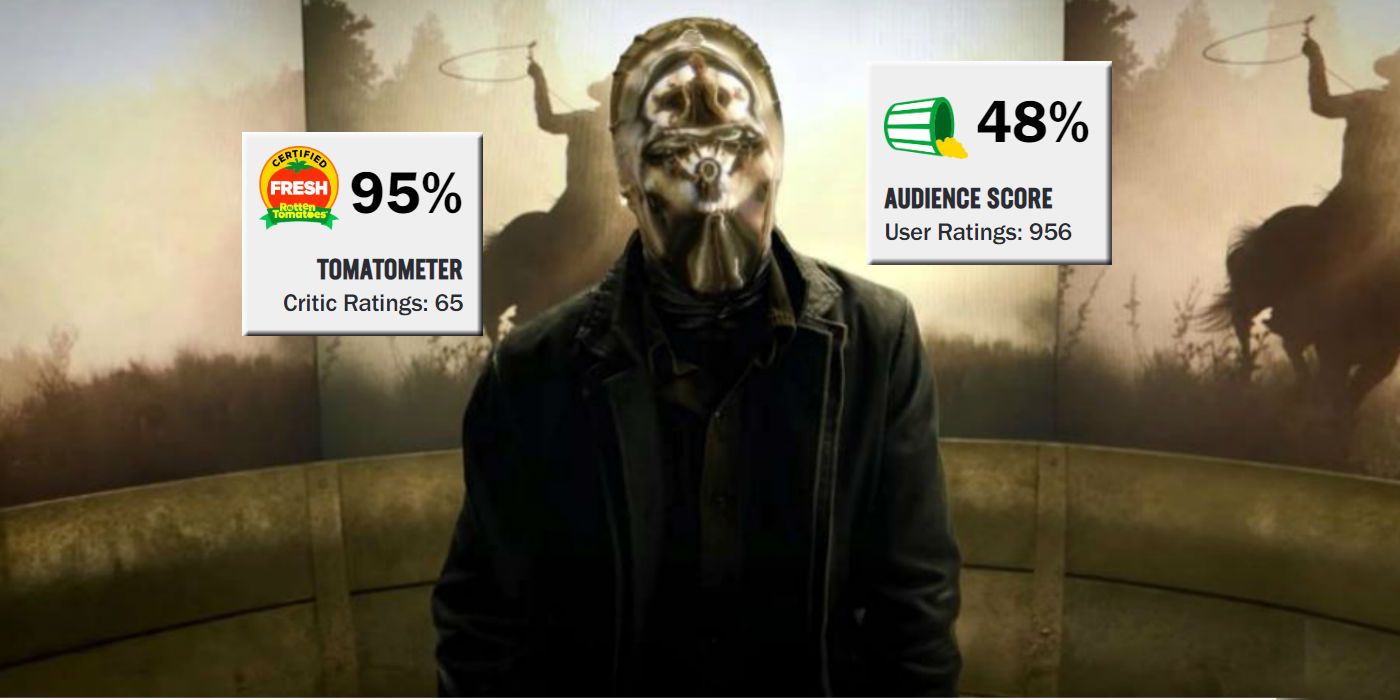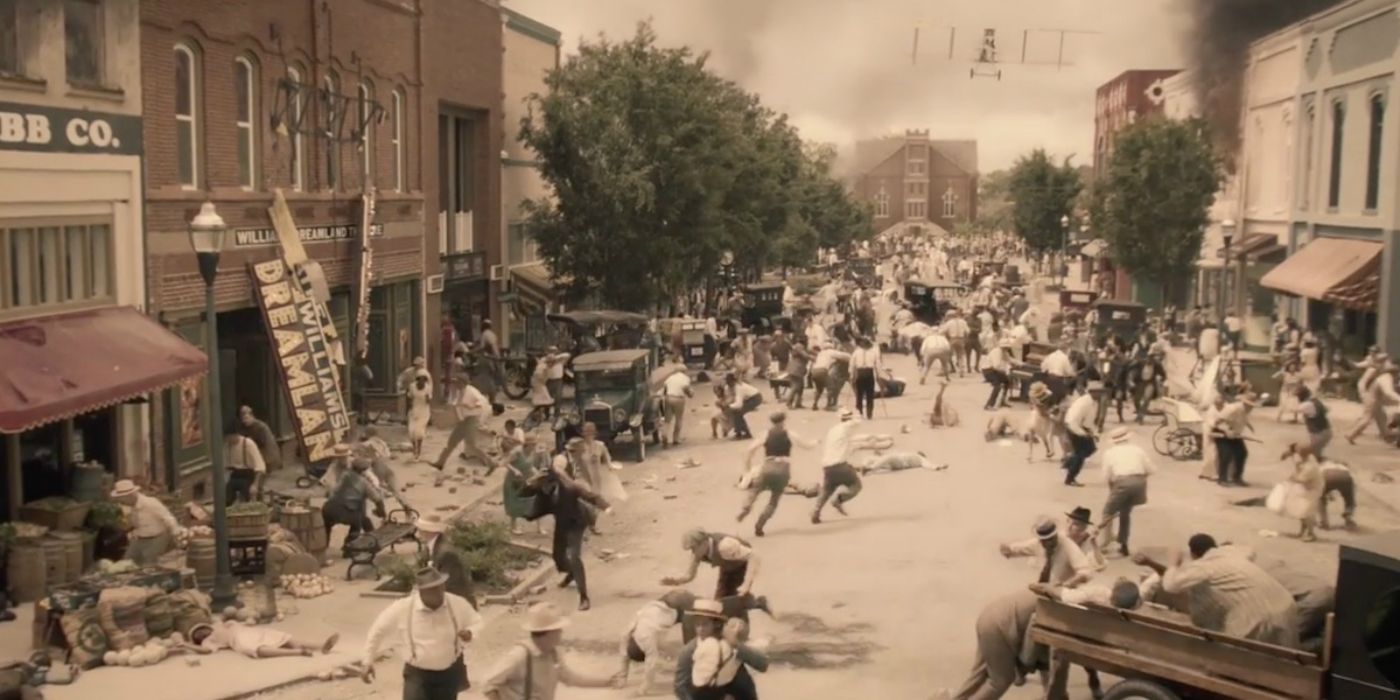HBO's Watchmen debuted last weekend to massive critical acclaim, but review aggregate sites are showing a divide between critic and audience scores. Do general audiences and fans of the original graphic novel really dislike the show, or has Watchmen simply become the latest release to be subjected to review bombing?
Created by Damon Lindelof, Watchmen takes place 30 years after the original graphic novel by Alan Moore, Dave Gibbons and John Higgins. Set in Tulsa, Oklahoma, it continues Watchmen's alternate history timeline by imaging how the horrifying events set in motion by Ozymandias have shaped the world since then. Police officers are forced to work in secret, wearing masks on the job and having cover stories so that no one will suspect they're cops, and cannot even use their weapons without permission. In this world, Detective Angela Abar a.k.a. Sister Night (Regina King) and the rest of Tulsa's police force must use their limited resources to combat a white supremacist gang called the 7th Kavalry.
Watchmen season 1 has a near-perfect critic score of 98% on Rotten Tomatoes, (which measures the overall percentage of positive vs. negative reviews) and a similarly impressive critic score of 85 on Metacritic (which averages out the ratings given by reviews). However, the audience review scores are 45% and 4.7/10, respectively. While some might take this as a sign that critics are simply out of touch with the average TV viewer, certain movies and TV shows have a tendency to attract review-bombing campaigns that can skew the results. This is especially true for comic book properties; both Captain Marvel and Black Panther were subjected to review-bombing, as the first Marvel movies to feature a female protagonist and a black protagonist, respectively.
Unsurprisingly, many of the user reviews for Watchmen seem to take issue with one particular aspect of the pilot: race. Watchmen opens with a depiction of the 1921 Tulsa race massacre, features an all-black production of Oklahoma!, shows Angela being subjected to racist comments from a child during a career day presentation at her son's school, and culminates in a showdown with a group of white supremacists who wear Rorschach masks. Many of the reviews accuse the show of "race-baiting," "virtue signaling," "preaching," or having a "SJW (social justice warrior) agenda." These reviews also frequently include complaints that the show is too "political" - which is somewhat ironic, given the source material.
Not all of the negative reviews point to the show's politics as their biggest issue. Some are from fans who are angered that the show either isn't an adaptation of the graphic novel, or doesn't have strong enough connections to it. With regards to the white supremacist gang in particular, there are complaints that they wear imitations of Rorschach's mask, arguing that it's a betrayal of the character. However, it's worth noting that in the original graphic novel Rorschach was really more of an antihero than a superhero, and was an enthusiastic reader of hard-right magazine The New Frontiersman. At the end of Watchmen he sent his journal (replete with all of his thoughts about "whores" and "filth") to be published by The New Frontiersman, so it's not a stretch to believe that his words could have inadvertently inspired a group of masked terrorists.
Ultimately, the real test of whether the audience scores for Watchmen are actually representative or simply the result of review bombing will be the show's ratings performance as season 1 continues. The pilot drew an impressive 1.5 million viewers, and if those numbers remain steady or show an upward trend over the coming weeks then, all aggregate scores aside, HBO could have a major new hit on its hands.


